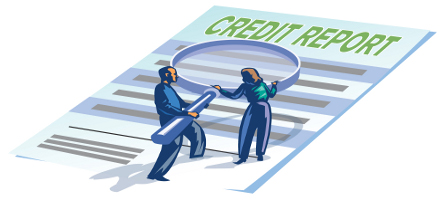-
2018 Buick Enclave “Avenir” will have ionic air purifier - April 12, 2017
-
Lease a Luxury Car for Less Than You Think - April 5, 2017
-
Shopping for a Car When Your Credit is Low - March 31, 2017
-
Aston Martin Closer to Unveiling Second-Generation Vantage - March 21, 2017
-
2017 Bentley Bentayga SUV: Offroad for $238,000 and Up - March 14, 2017
-
Pagani Huayra is Finally Here, Only $2.4M - March 9, 2017
-
Mercedes AMG E63 – For When Your Wagon Needs Drift - February 6, 2017
-
2018 Audi Q5 SUV: Enhanced Performance - January 30, 2017
-
2018 Toyota Camry Due in Late Summer - January 27, 2017
-
2018 Dodge Challenger SRT Demon Will Outstrip Hellcat - January 23, 2017
How to Manage Your FICO Score During the Recession
We’re guessing that on most Americans’ list of 2009 resolutions is to increase their credit score, or repair it from damage it sustained in 2008.
Fair Isaac, the company that developed the FICO score, which most lenders use to determine if they will lend to someone, has some tips for consumers on how to manage their FICO score during the economic downturn and tighter credit standards.
"People who maintain a strong FICO score can improve their ability to get lower interest rates even in tough times," said Shon Dellinger, vice president of myFICO® for Fair Isaac. "A better FICO score can also help them qualify for more favorable terms on an auto loan or mortgage refi, lowering their monthly payments. That kind of help can be vitally important to millions of people facing financial challenges."
Here are Fair Isaac’s suggestions:
· Make all your payments on time. The calculation of FICO® scores weighs payment history more heavily than any other variable on your credit report. Making all your payments by their due date is a key ingredient for a good credit score. When money is tight, pay at least the minimum amount due on credit card debt to avoid being reported delinquent. Overdue bills can significantly lower your score, including unpaid debts sent to collection agencies.
· Keep credit card balances low. Individuals with good credit scores come from every income level, and in tough times they tend to scale back their use of credit cards and pay down their debts. If your credit card balances are close to your credit limits, budget your finances to make debt reduction a top priority. Your indebtedness is the second most important factor for FICO® scores.
· Open new credit cards or loans only when necessary. Opening new credit accounts may cause your score to go down so be cautious about taking on new debt. This includes thinking twice before opening a retail store card just to get an extra 10 percent off your current purchase.
· Get your free annual credit report from each national credit reporting agency through www.AnnualCreditReport.com, and check your credit history carefully for errors. Contact the reporting agency if you spot an error so they can investigate it.
· Know your current FICO® score. A lot of different credit scores are available online, but only the FICO® score is widely used by lenders. Check your score at www.myFICO.com for $15.95 and also receive expert guidance to help you manage your particular score over time.
· Ask your bank about getting your FICO® score free every month. Over one million consumers now have access through their banks and credit unions to a free FICO® score every month on their online statement. Ask your bank or credit union if you are eligible to receive your free FICO® score.
· Contact your lender if you are in trouble. If you think you won’t be able to pay your bills and strict budgeting isn’t going to solve the problem, contact your lender and explain your situation. They may be able to work out a payment schedule that you can live with.

















